I spent days researching the infamous “no man’s land” between Morocco and Mauritania. Everything I read described it as a 3–4 km stretch of unpaved road, full of mines and wrecked, burned-out cars on both sides. It sounded like a war zone.
Needless to say, I was very nervous about this part of the crossing. But reality surprised us.
After a smooth and efficient exit from the Moroccan side, we kept cycling… and suddenly realized — the road was paved! That was our first shock. At least half the road from the Moroccan side is now asphalt. The Mauritanian side, though, was a disaster.
We didn’t see any wrecked cars or debris either — all cleared away. I later found this article explaining that Morocco launched a military operation in 2020 to clear and secure the area after repeated blockades: Al Jazeera article
When we arrived on the Mauritanian side, Nelli, the French cyclist travelling with us, quickly pulled out her phone and started taking photos — bad idea. Within seconds, police officers ran up, confiscated her phone, and forced her to delete all the images.
The first officer greeted me with a gruff “Thanks” and took my passport. Then… he started typing. One. Letter. At. A. Time.
After a few minutes, he gave my passport back — then immediately asked for it again, just to repeat the whole process.
Eventually, another officer came and told me to go meet the Big Boss.
I told him, “I don’t want to leave Sandra alone — she doesn’t speak French or Arabic.”
He said, “No problem. Don’t worry.”
Officer: “How are you?”
Me: “I’m good.”
Officer: “Why do you speak Arabic?”
Me: “I’m originally from Syria.”
Officer: “Do you know the word ‘Hadia’?” (Arabic for a gift)
Me: “No, I don’t.”
Officer: “”Hadia” is when someone gives you something. Like… looking for something on me, like if you give me this Garmin watch, that’s a hadia.”
Me: “I don’t understand.”
What made everything worse was Nelli again — asking them to change money for her. I mean… who asks a border officer to exchange currency?! It only dragged things out. so they tried to make us wait longer after they saw the Euros with her.
Tow Hours of Mind games This was the longest border crossing I’ve ever experienced — nearly two hours of bureaucracy and subtle corruption.
And that wasn’t the end. We still had to walk to the next office to get our Mauritanian visa, which is issued on arrival. More delays.
Again, Nelli gave an officer money for the visa, and he claimed he already gave her change — he didn’t.
Honestly, Mauritanian border police have been the most annoying and corrupt we’ve dealt with so far.
Finally — after 2.5 hours of nonsense — we were allowed in. We rolled forward… only to be stopped again just 10 meters from the police station.
It was around 4 PM and we needed to find a place to pitch our tent.
Police: “Where are you coming from?”
Me: “What are the options here? I’m coming from the only country you share a border with — obviously, I’m coming from Morocco.”
Police: “Where are you going?”
Me: “Nouadhibou.”
Police: “Too far! It’s 45 km. you can’t go”
Me: “Can we camp nearby?”
Police: “No, no. Go in the other direction to the east. There’s a village about 50 km from here. It’s closer.”
I’m literally not exaggerating this was the literal dialogue with them.
At that point, I realized something very clearly: we need to avoid any unnecessary interaction with Mauritanian police.
We cycled a few kilometres and asked people if we could pitch our tent, but they seemed hesitant to talk to us. At the junction where the road splits between going to Nouadhibou to the right and direction Naukshout to the right, we encountered customs border control.
We said goodbye to Neli, who headed to Naukchott, while we made our way to Nouadhibou, primarily to find an ATM. We found one and withdrew some cash before heading to the tip of the peninsula.
As I approached Nouadhibou, I checked OpenStreetMap and was shocked to see the area around the main road marked clearly as full of landmines. Seeing that made me extra cautious.
Mauritanians have a deep love for the Mercedes-Benz W123, especially the iconic 240D model. These cars are everywhere — used as taxis, family vehicles, and even long-distance transports.
returning to Nouadhibou. The wind was very strong—so strong that it was almost impossible to cycle, and the sand made it even harder to keep our eyes open.We stopped to flag down a small car, put our bikes in the back, and drove 4 km into the city. After that, we asked a truck driver if he could take us 45 km out of the city. He agreed after some hesitation.
On our second night, we camped in the desert under a sky beautifully lit with stars, clear and vibrant in the absence of light pollution.
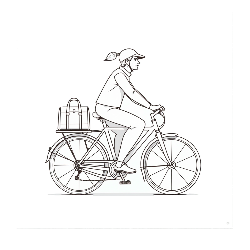

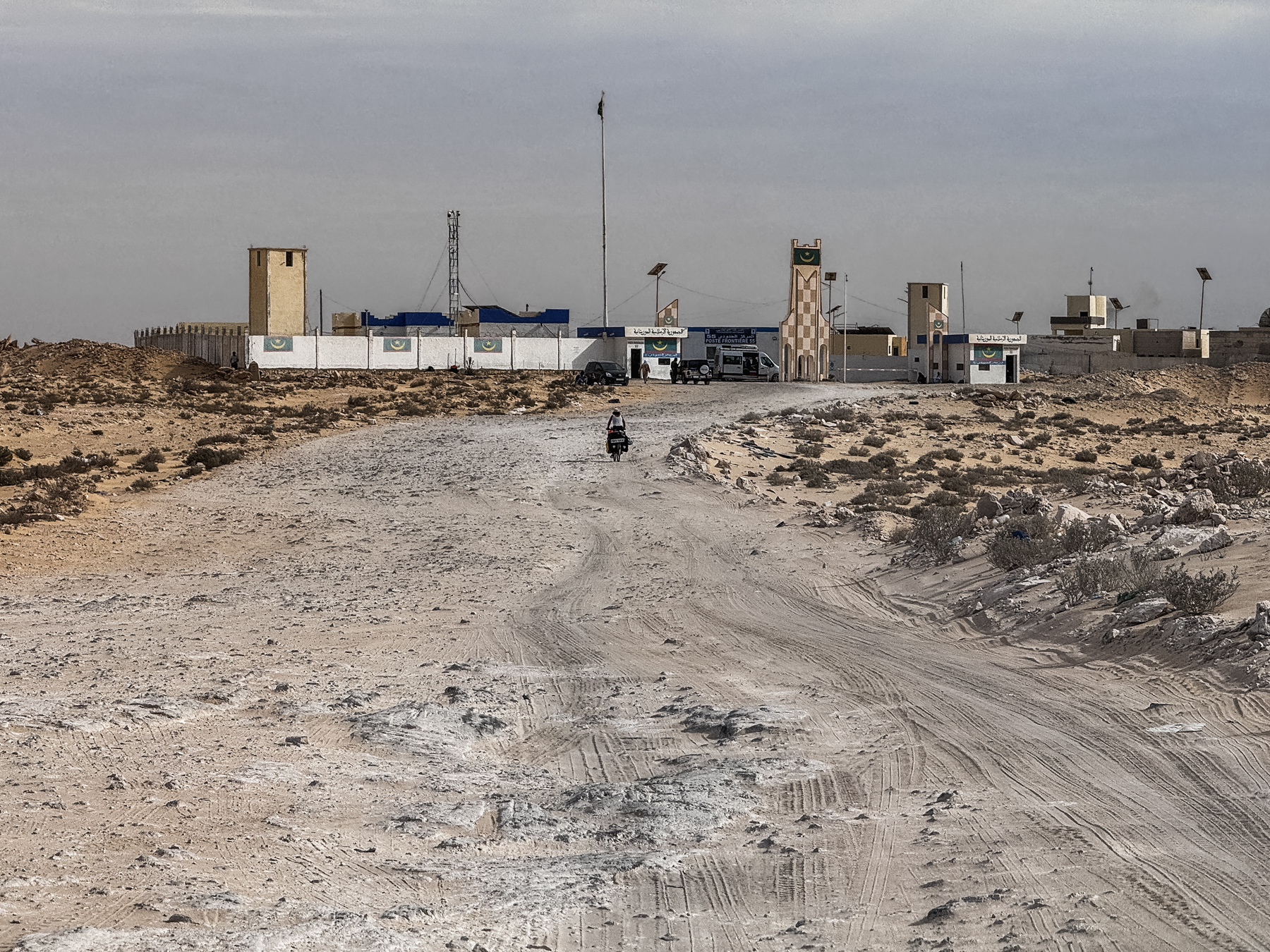
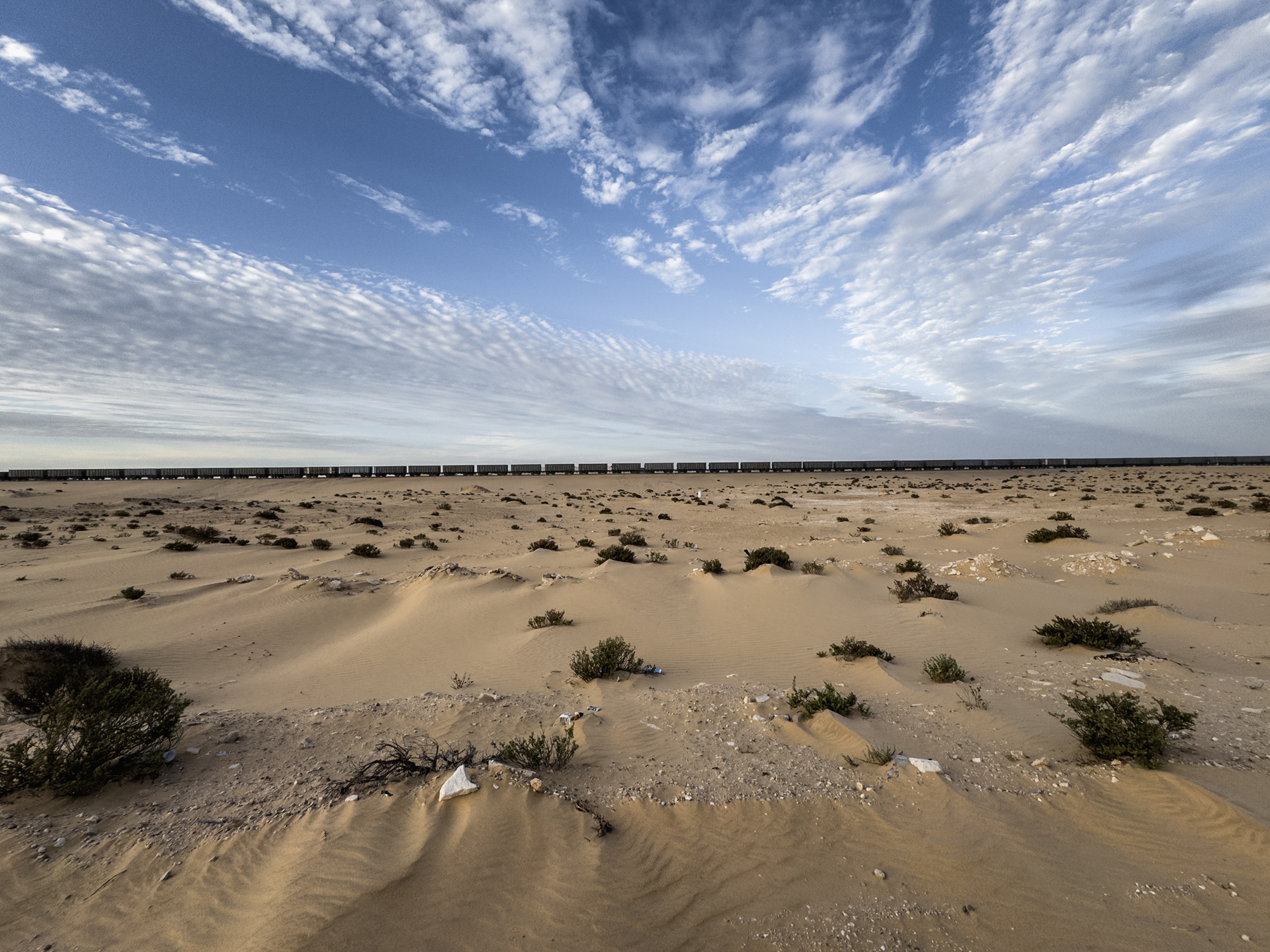
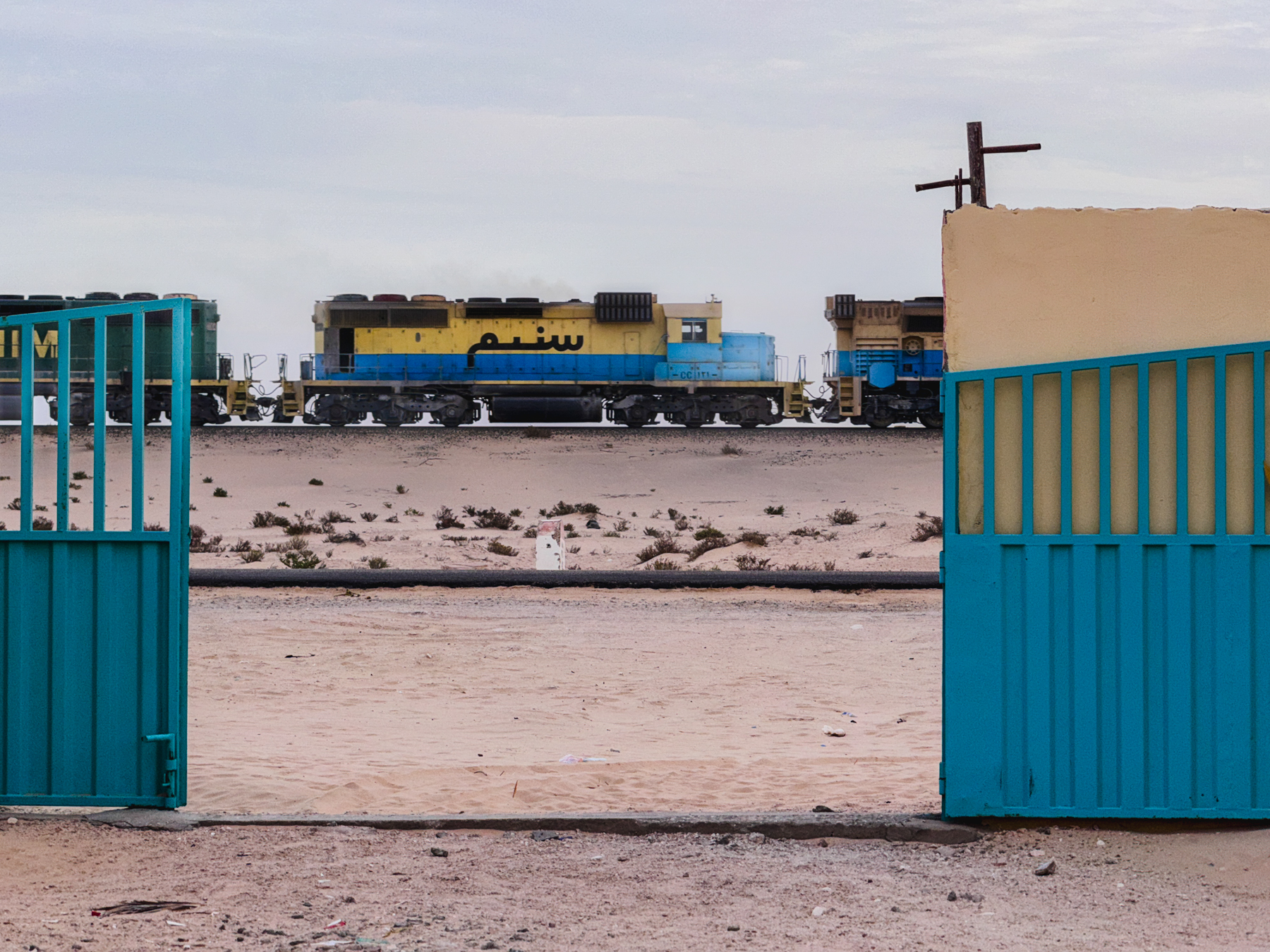
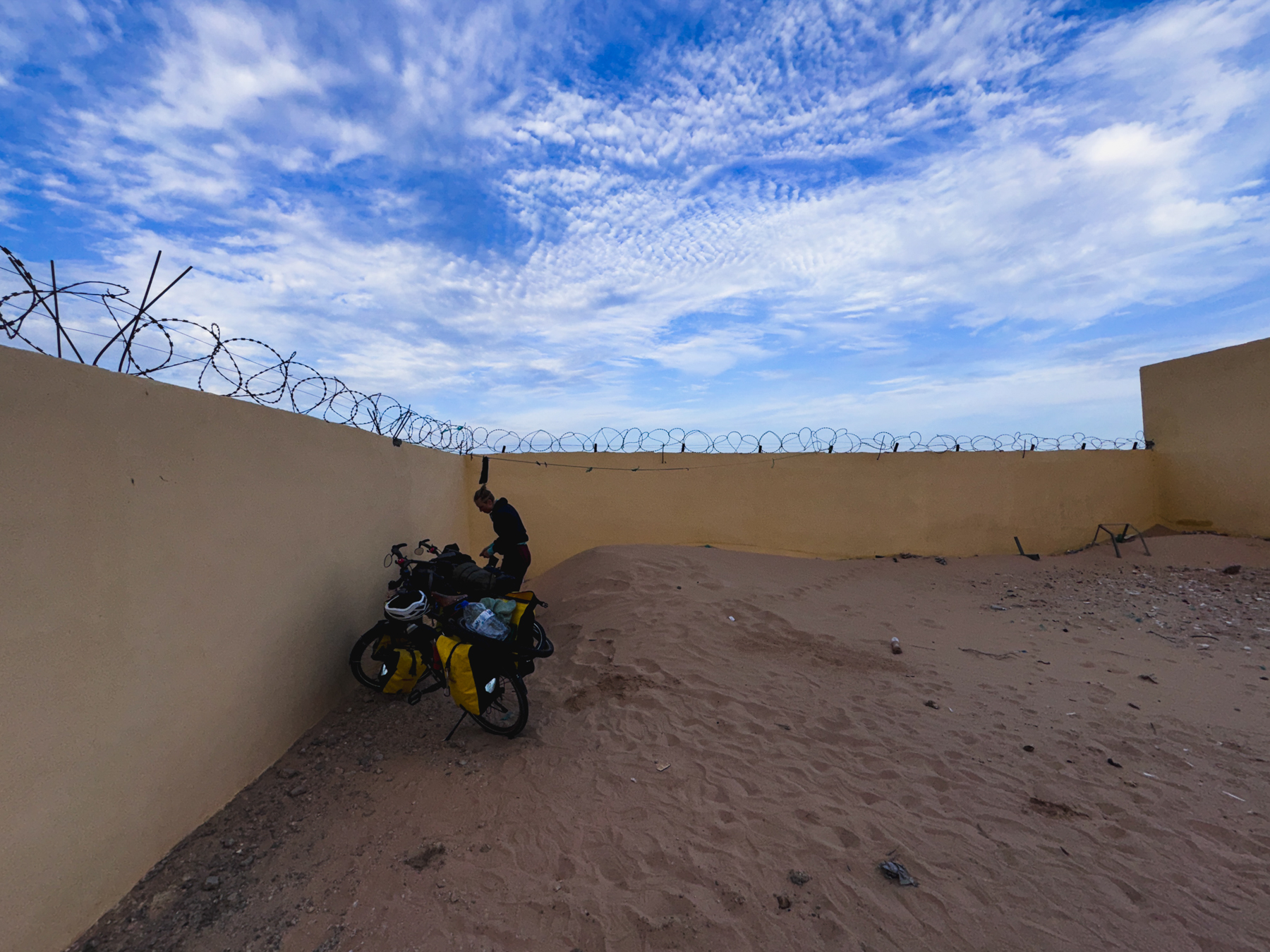
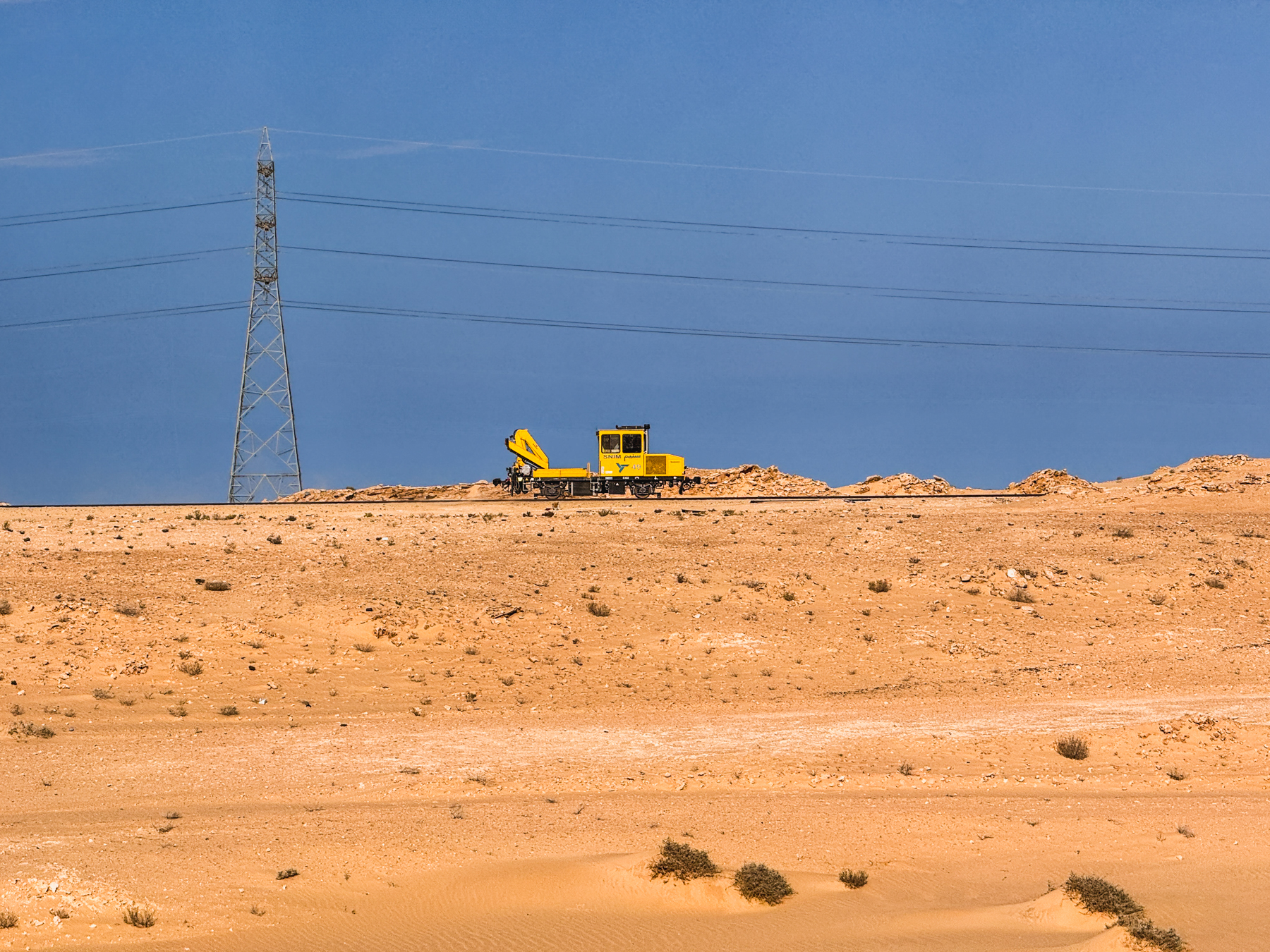
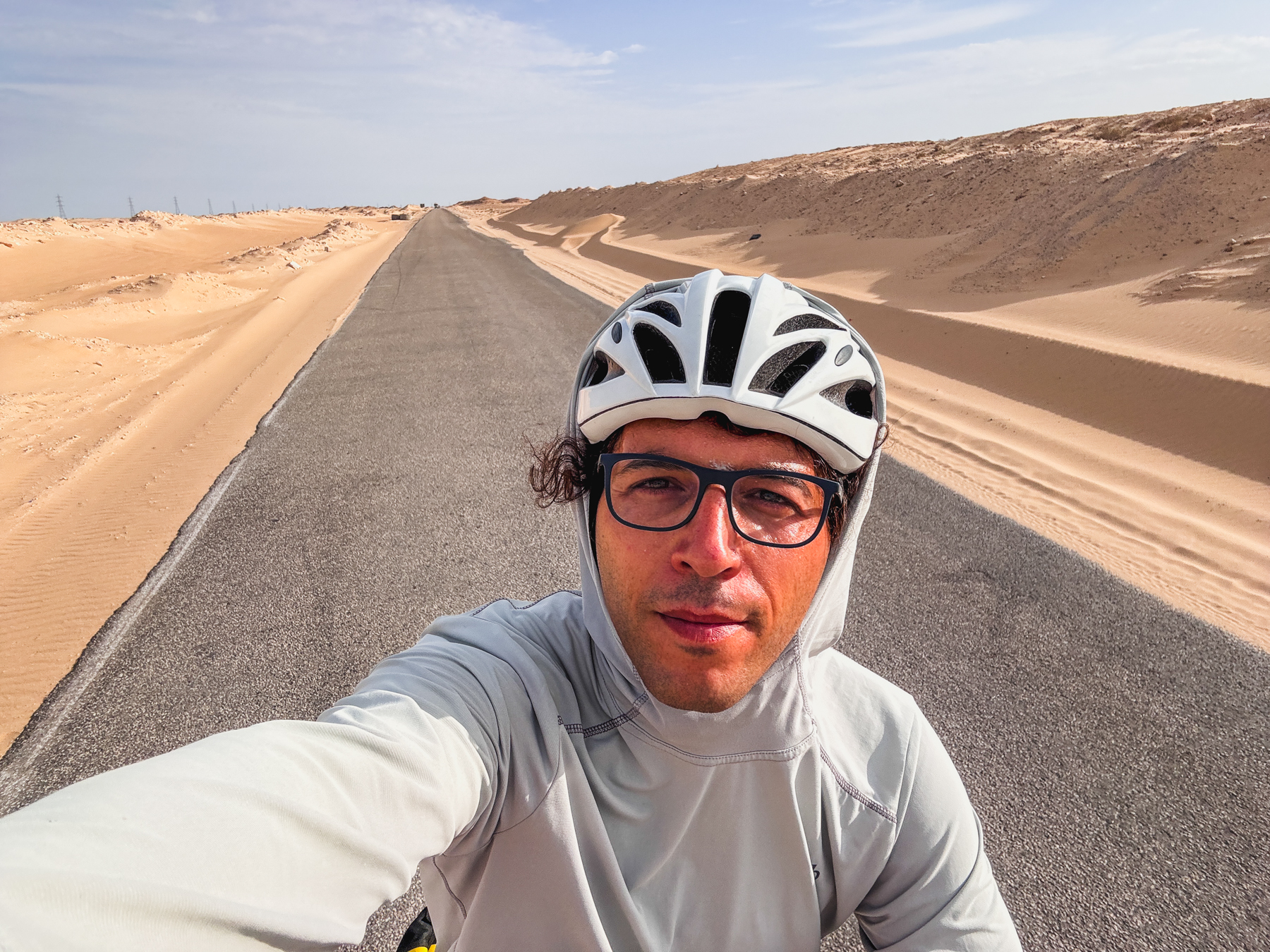
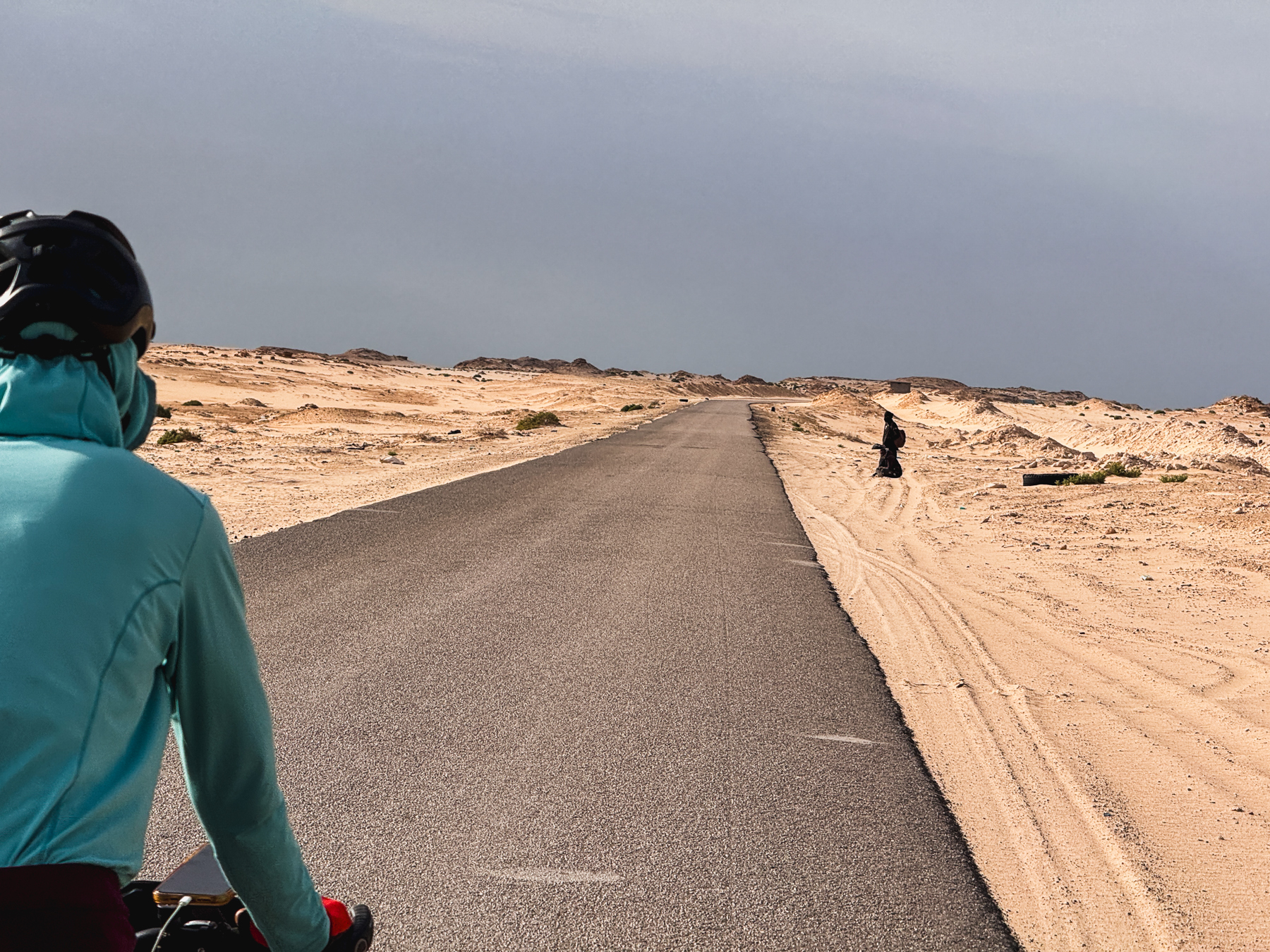
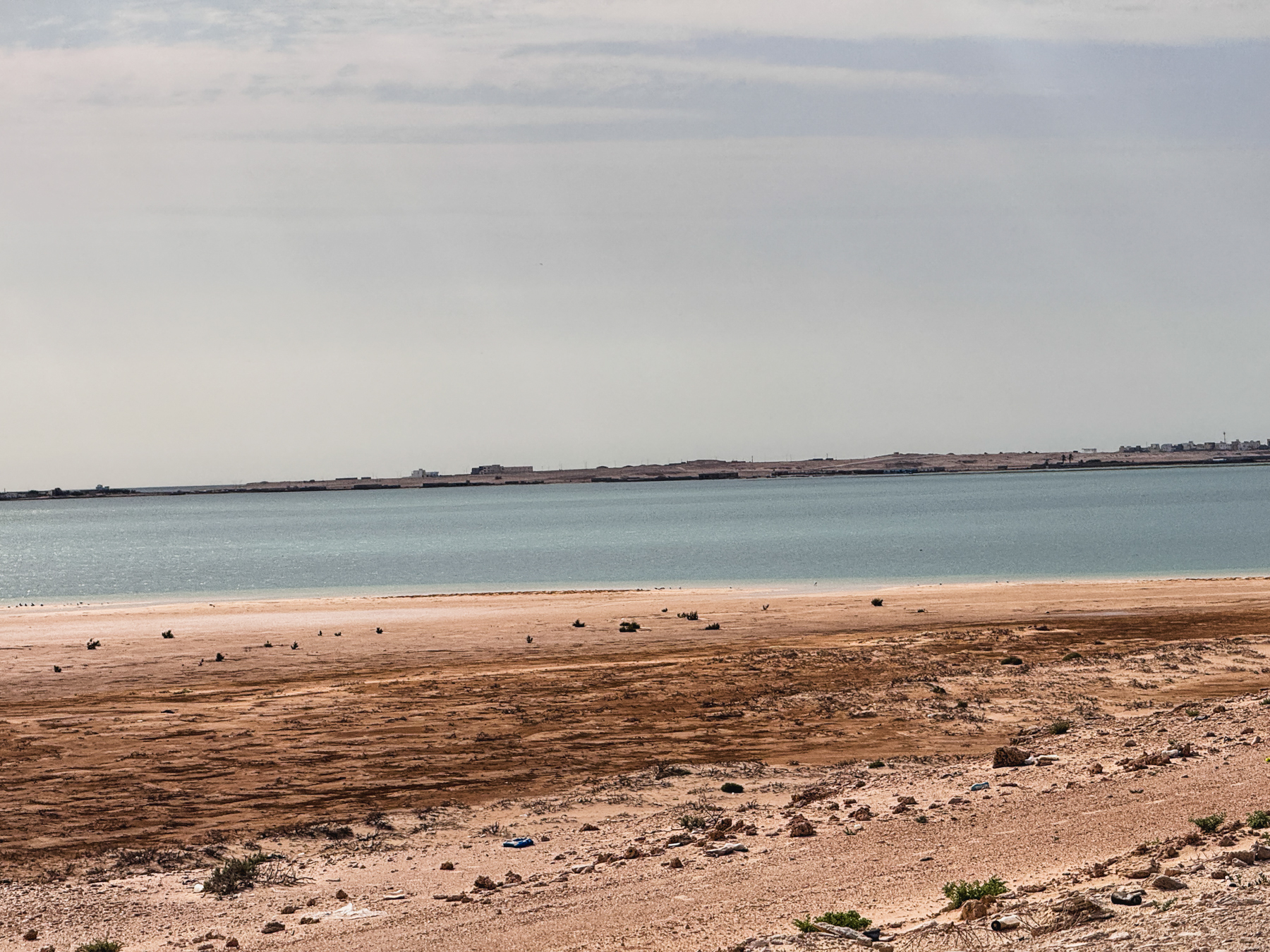
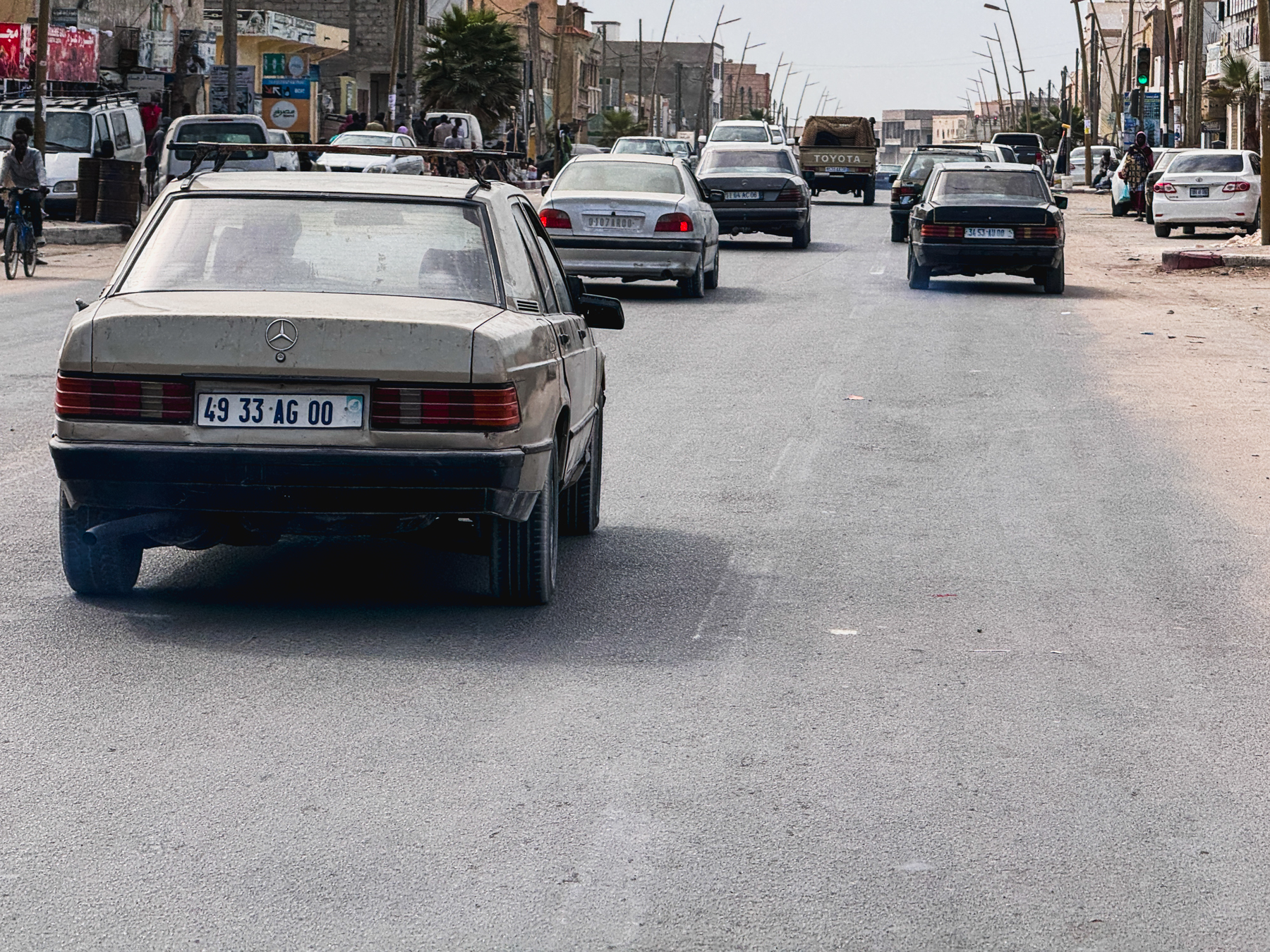
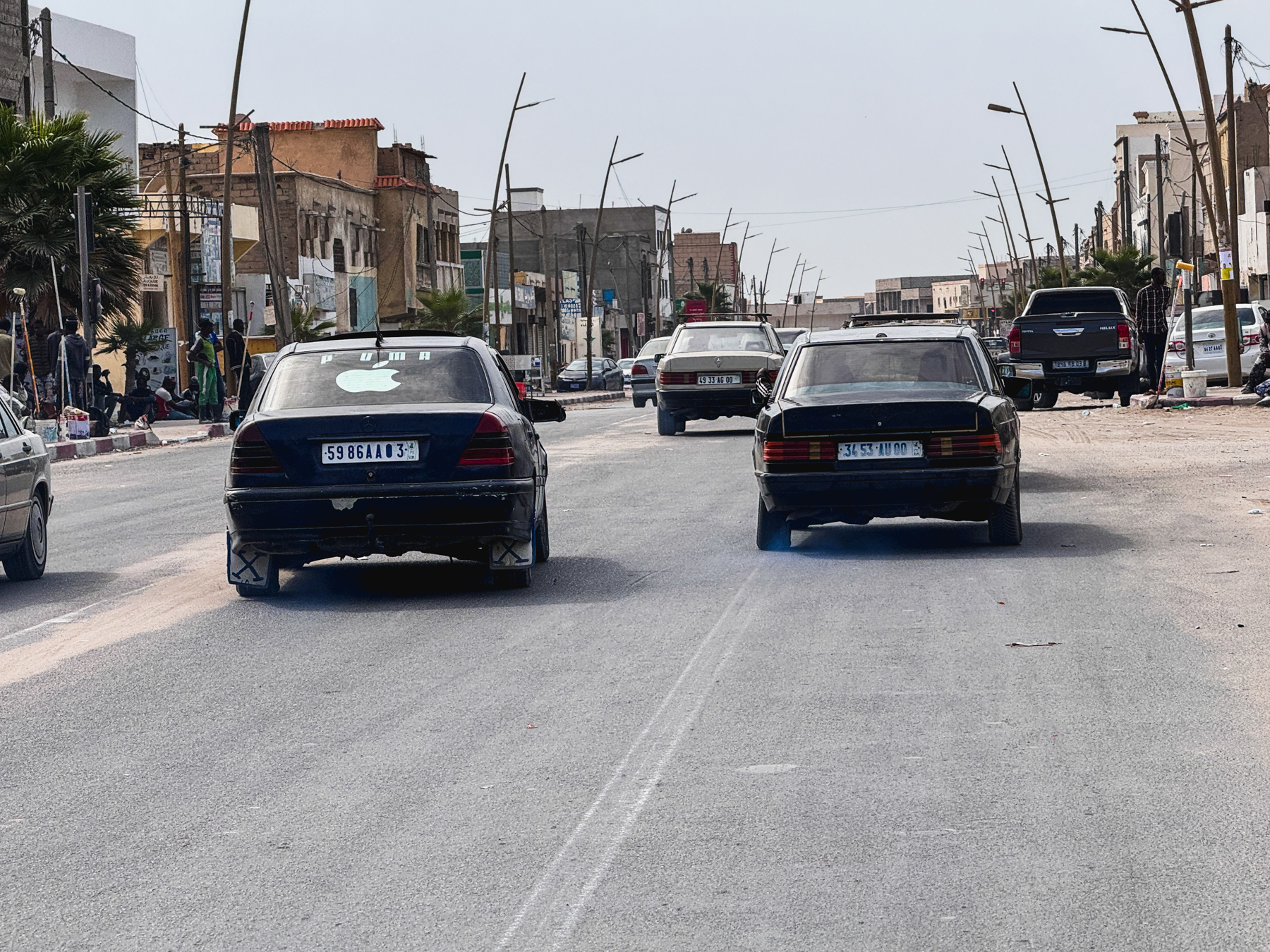
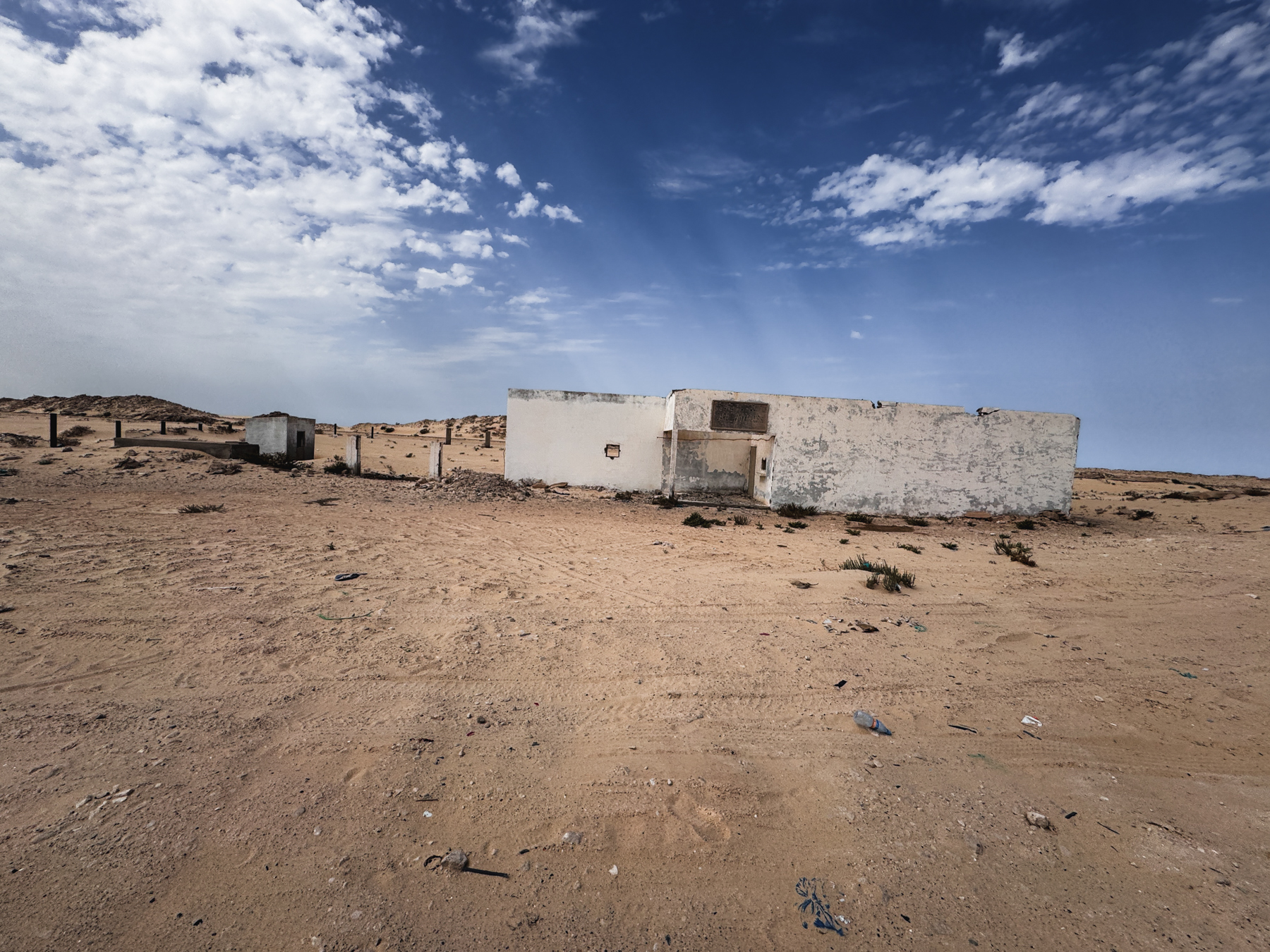
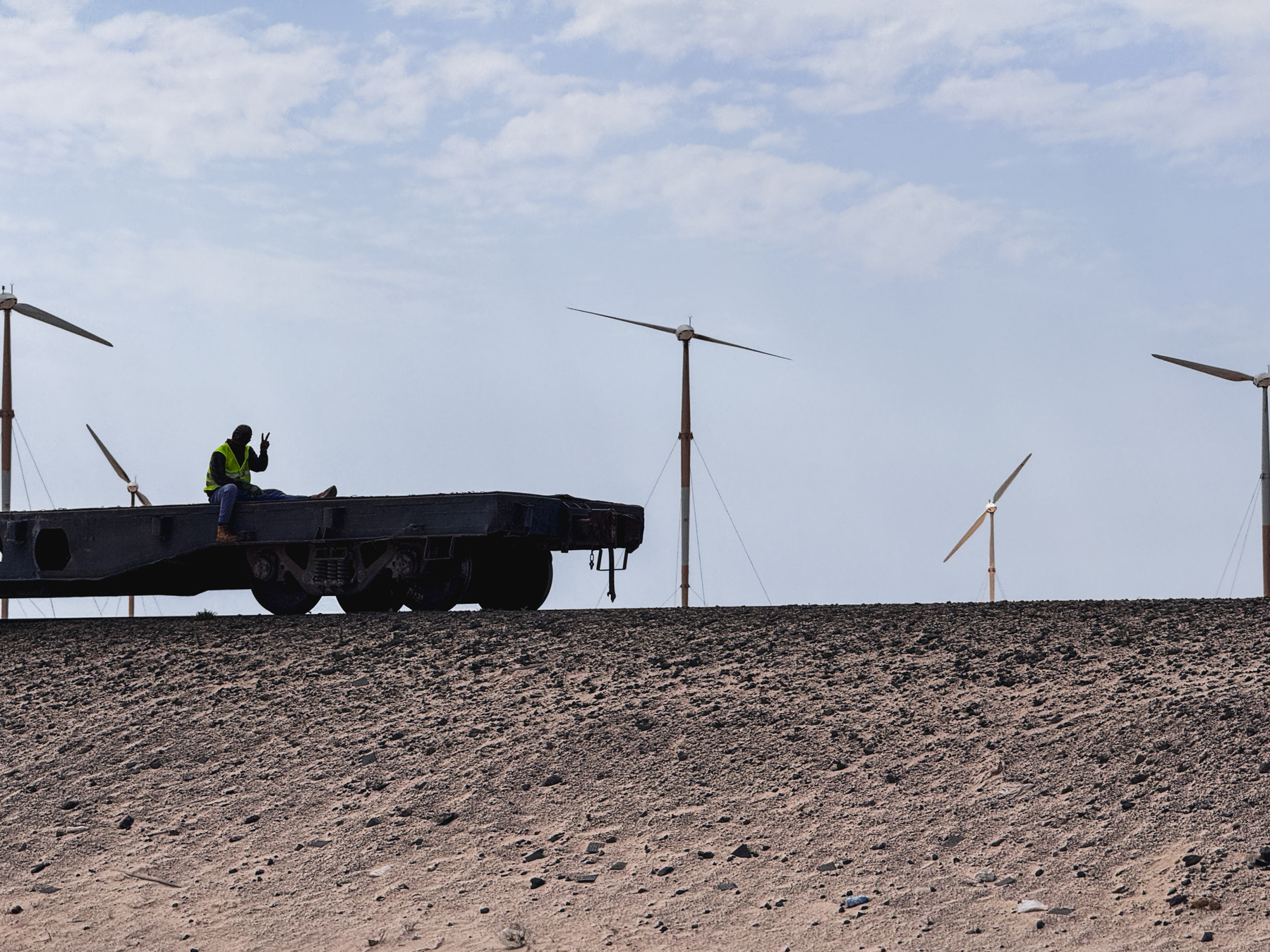
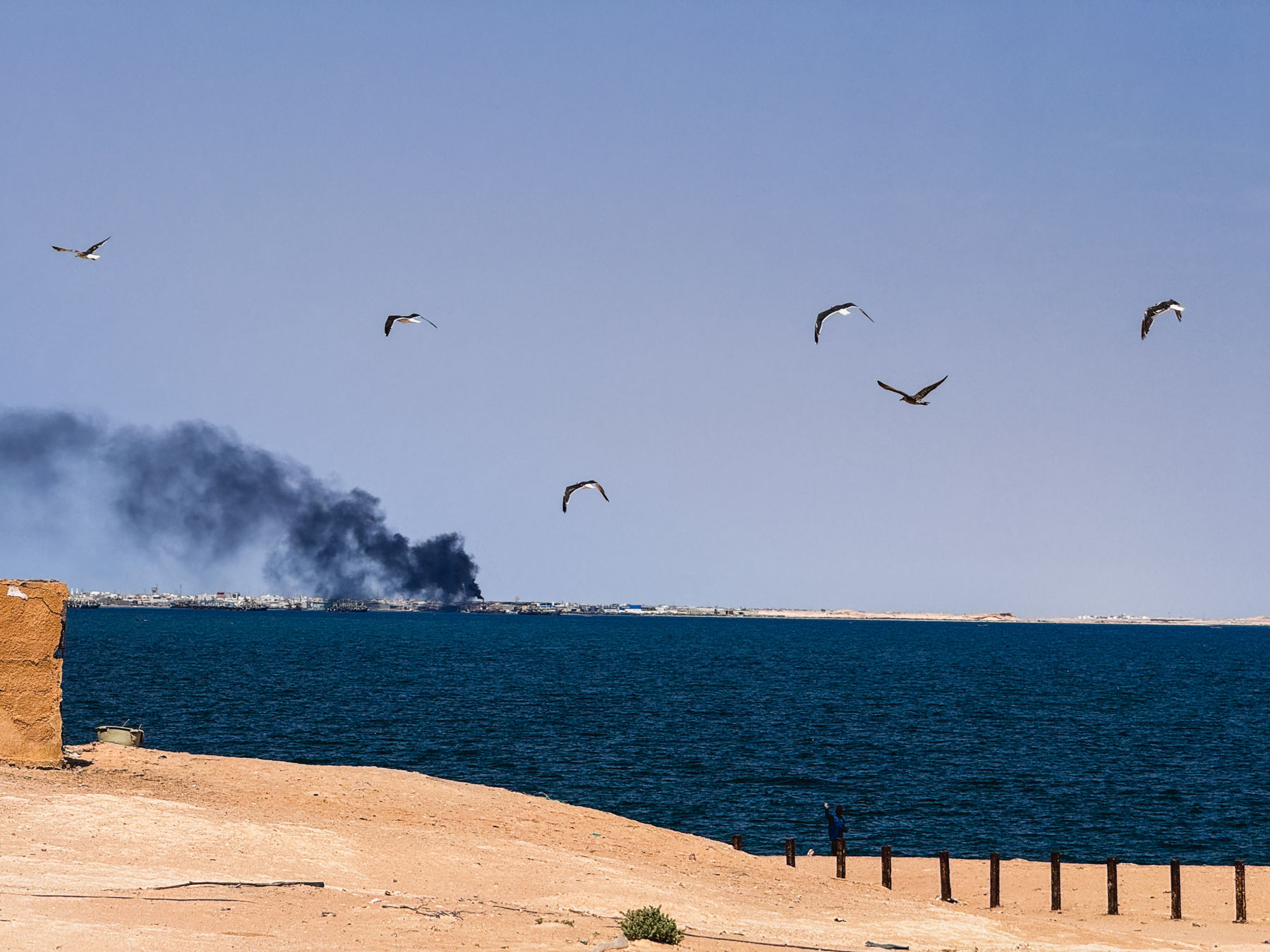

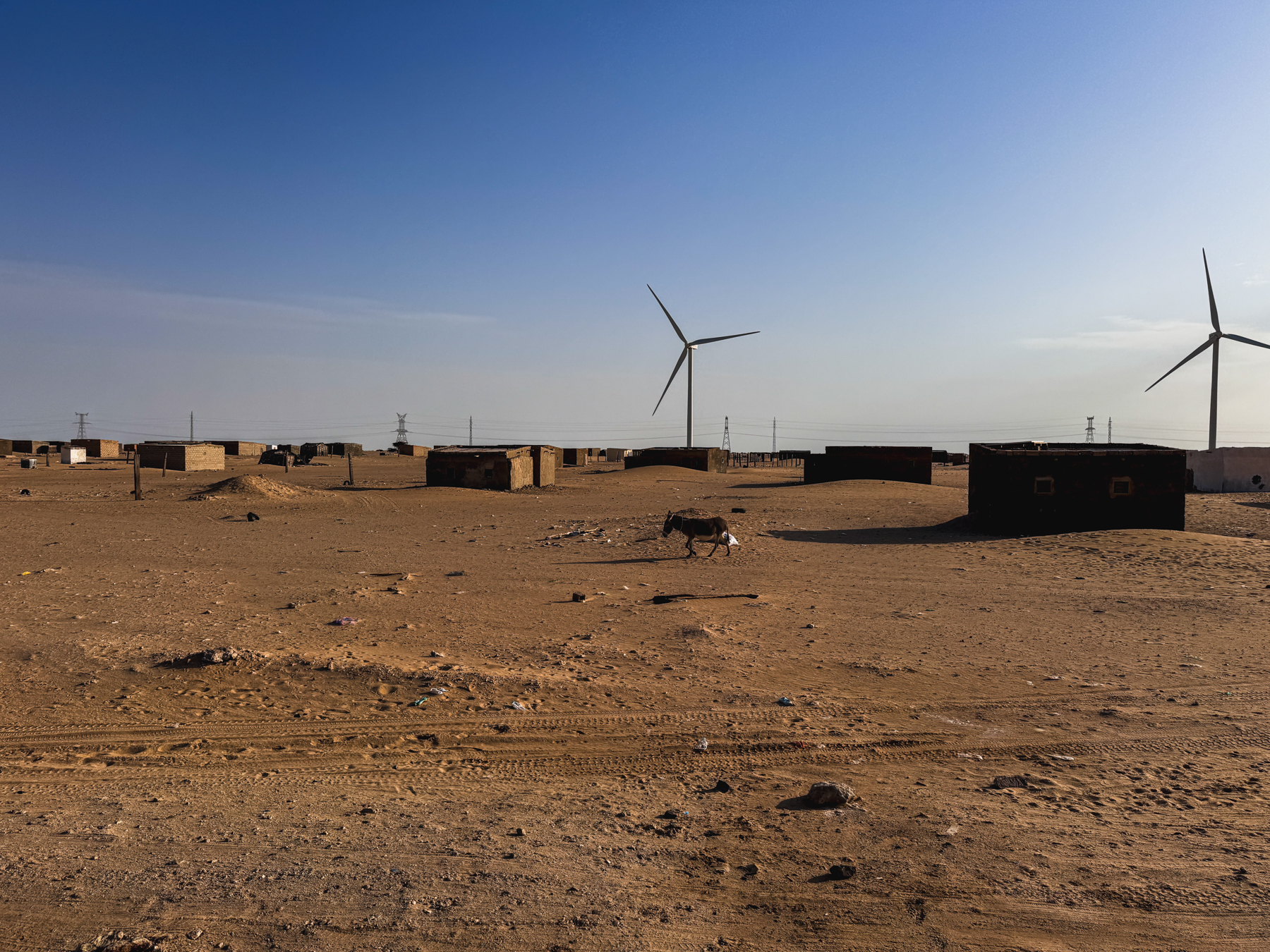
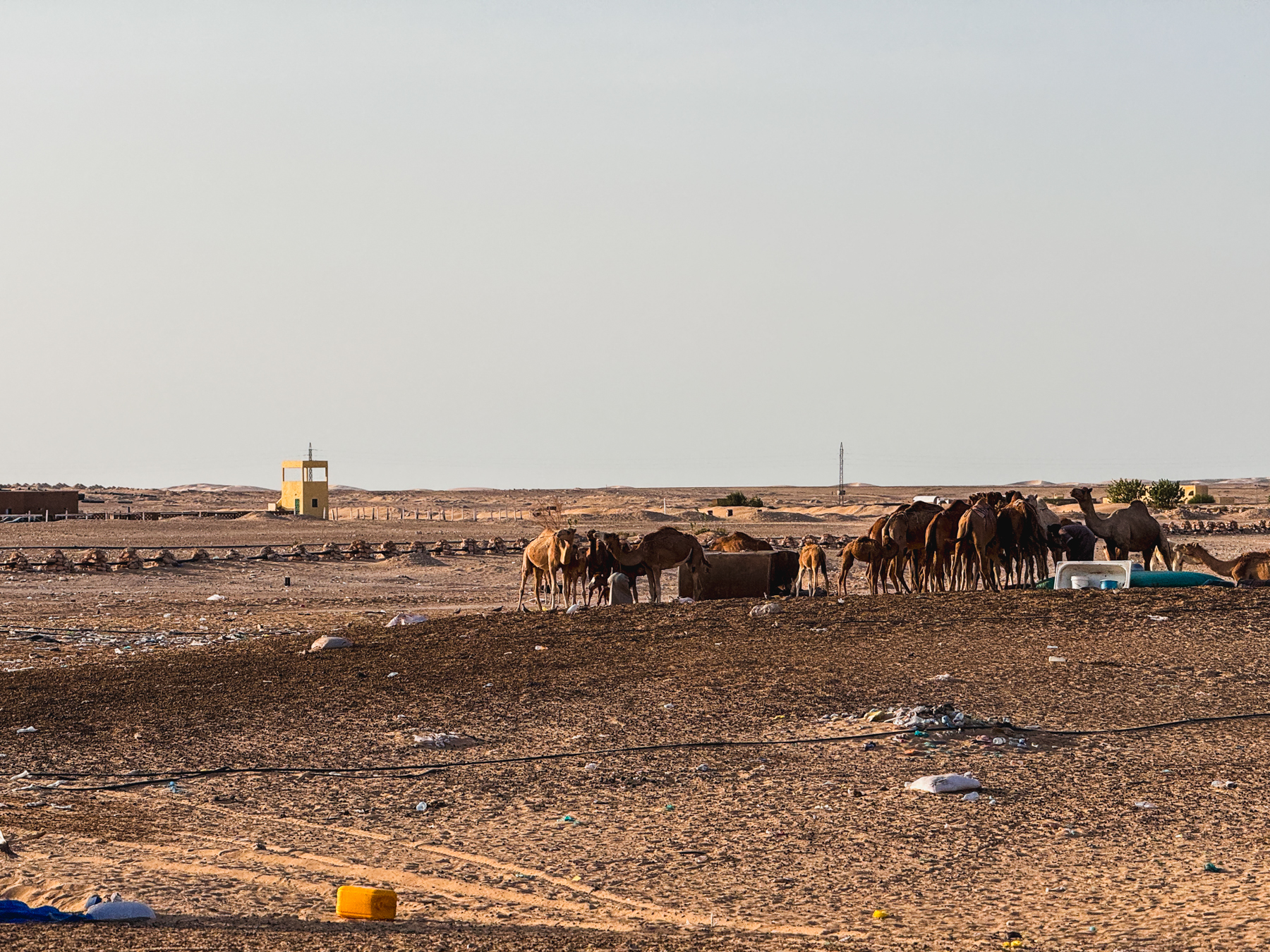
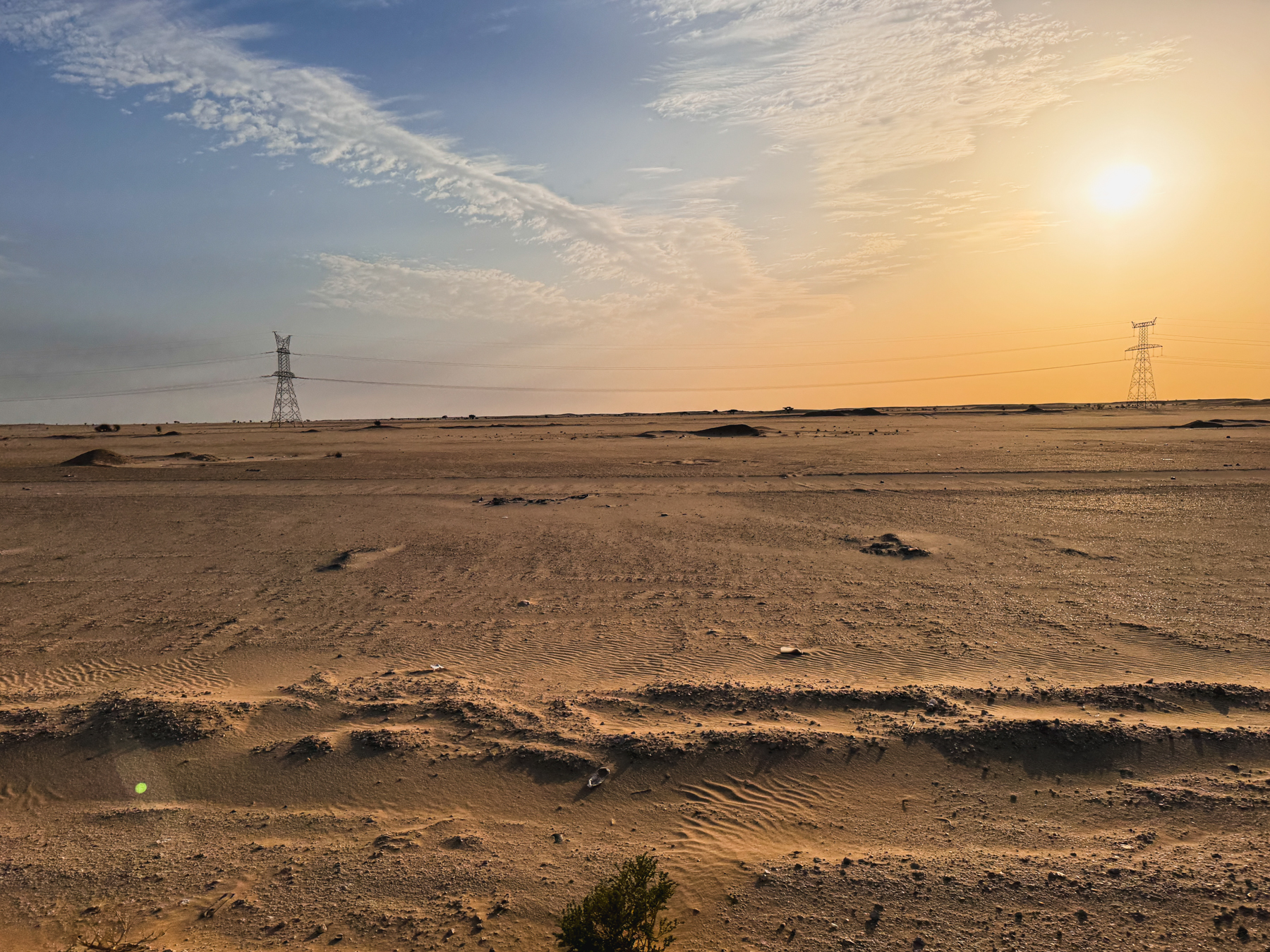


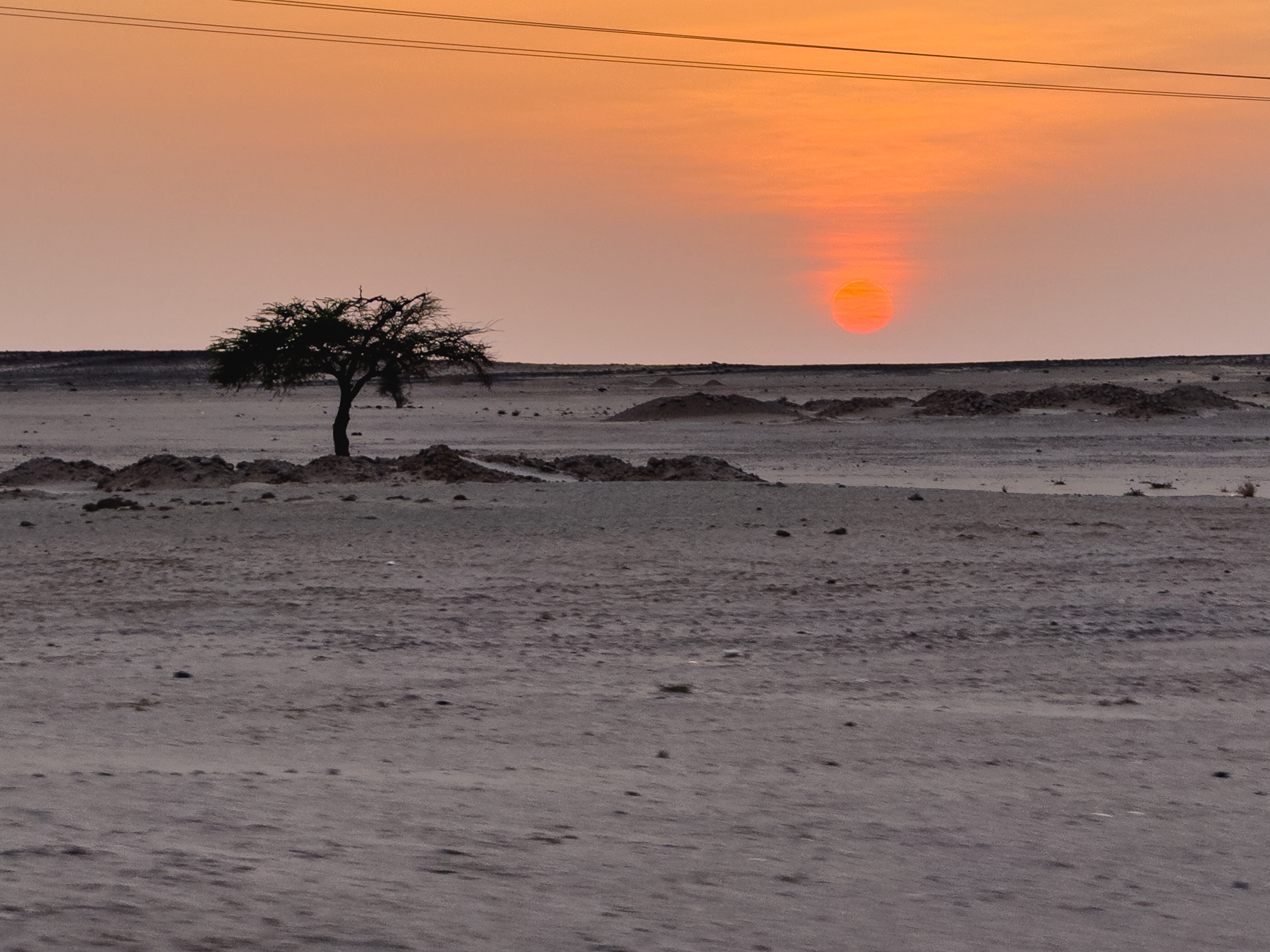
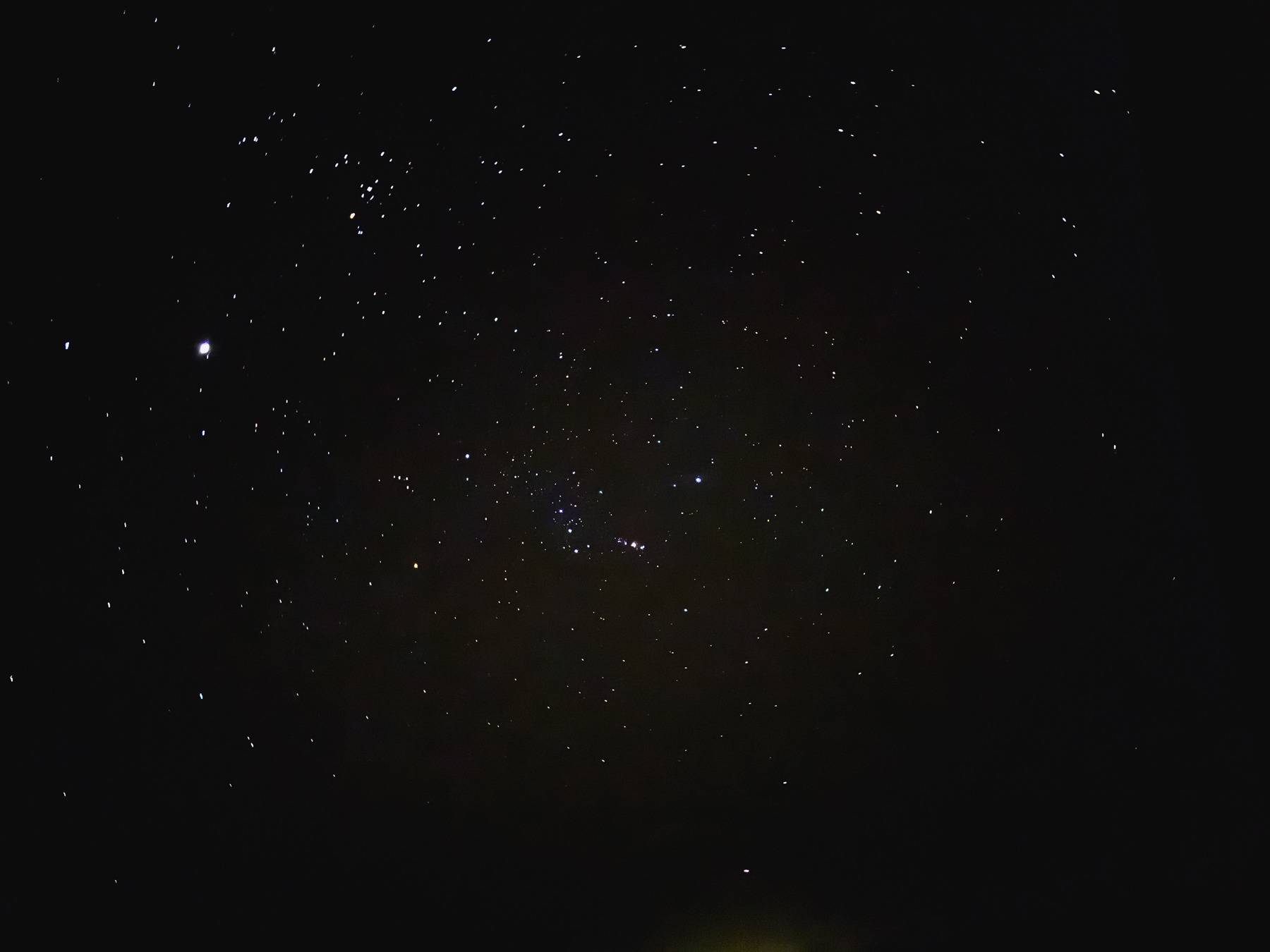

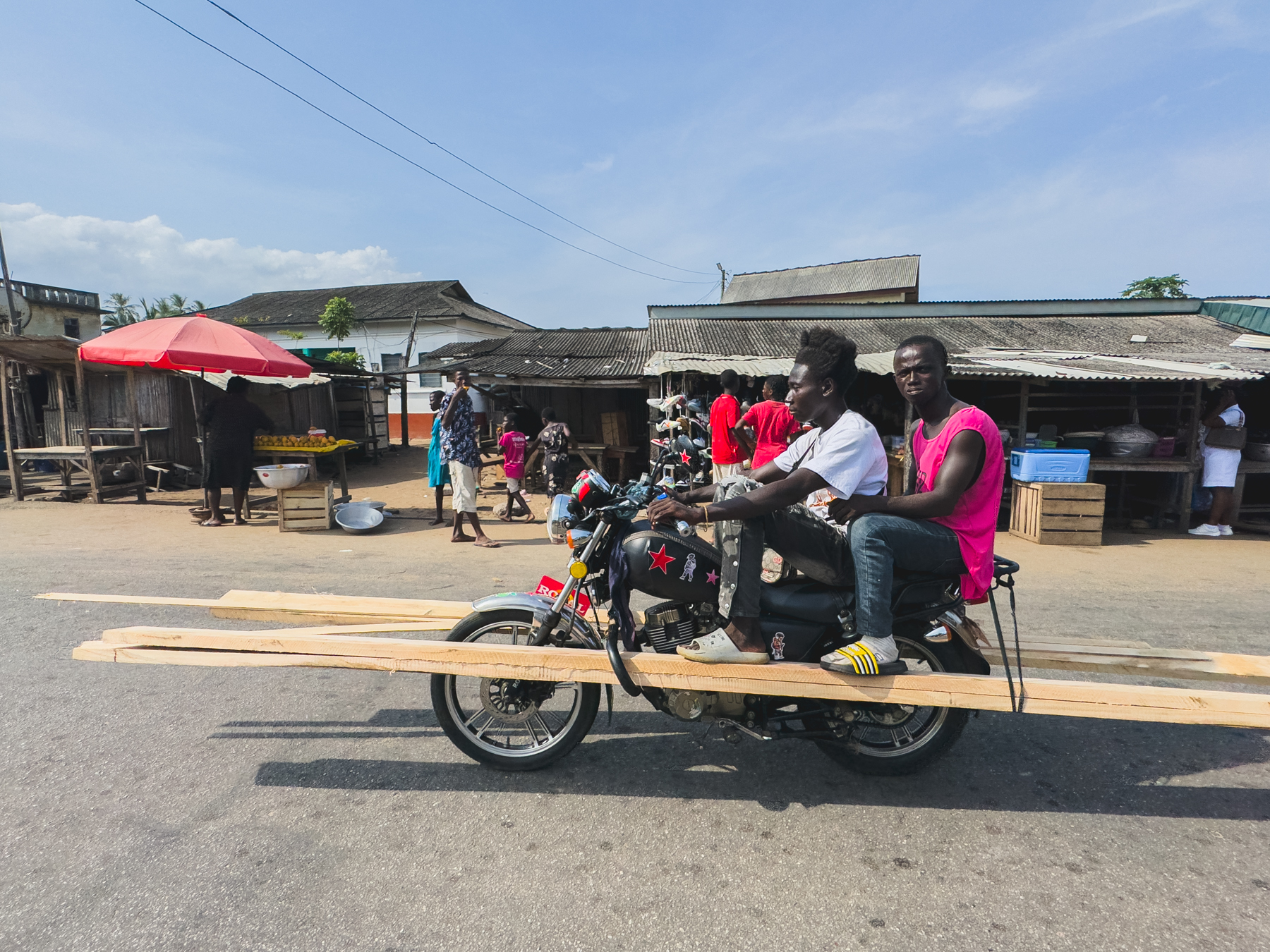

Leave a Reply